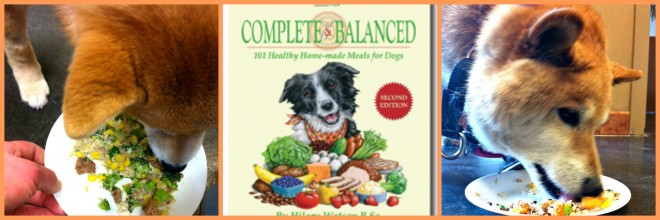
HOME COOKING FOR YOUR DOG AND CAT
Dr Julie Schell BSc(Hons), DVM, CVA, CVCHM, CVC
BOW BOTTOM VETERINARY HOSPITAL
Homemade, fresh pet food recipes, balanced by veterinary nutritionists, even with the ability to choose local and/or organic ingredients! What more could a pet or pet owner ask for? This way of feeding pets can help restore a pet’s appetite, hydration, enjoyment involved with eating, especially in pets with serious illnesses or choosy pets who will not eat commercial foods.
My favorite home cooked recipes for pets are made by animal nutritionist Hilary Watson, and are explained in her website www.completeandbalanced.com It includes recipes for puppy, adult, senior dogs, and special needs dogs such as dogs with food allergies or weight issues, or pancreatitis tendencies. Hilary Watson also has a cookbook for cats www.completeandbalancedforcats.com. Cats are carnivores, and have special dietary needs, thus, dog and cat recipes cannot be interchanged. Hilary also has a cookbook for dogs and cats with kidney disease. The recipes contain easy to understand directions, and you can use a food weigh scale, or measuring cups and utensils. Some of the ingredients can be purchases from your veterinarian such as salmon oil, and of course The Balancer, which is the powdered supplement that includes all the essential nutrients and micro minerals. The recipes are therefore not only complete and balanced, but delicious. There are many options as well, so if your pet is not enjoying one recipe, you can choose another. The food can be prepared ahead of time, in batches, and then frozen into individual serving sizes to make life easy. If you purchase the ingredients in bulk, you can save a lot of money. Interestingly enough, most of the ingredients are present in people’s homes already, and are already eaten regularly by the pet owners themselves.
and check out her new website HERE to create your own balanced recipes, and have access to all her recipes for adult dogs and cats.
If you want to feed your pet home cooked food but do not have the time for it, Rayne Clinical Nutrition can work with your veterinarian to formulate a diet to suit your pet’s needs and ship it to you fresh frozen. Check out www.raynecanada.ca
In summary, there are many excellent options for people who would like to home cook for their beloved pets. Ask your veterinarian to help you choose the best recipes for your pets. For more information check out www.bowbottomvet.com or give us a call at our office at 403-278-1984.


